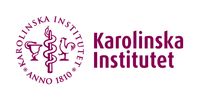Covid vaccine for pregnant women safe for newborn infants
No increased risks for babies, and for some serious neonatal complications lower risks. This is the result of the largest study to date on the safety of newborn babies whose mothers were vaccinated against COVID-19 during pregnancy. The study is a collaboration between Swedish and Norwegian researchers and is published in the journal JAMA.

COVID-19 vaccination in pregnancy was not associated with any increased risks in newborn infants. On the contrary, the study of nearly 200,000 newborns in Sweden and Norway showed that babies born by women who chose to be vaccinated were less likely to suffer serious complications, including death. The mortality rate was only half as high in babies whose mothers had been vaccinated.
“We made several attempts to explain this finding. A direct vaccine effect is unlikely. Previous studies have shown that the vaccine does not cross the placenta and that it cannot be found in umbilical cord blood," says Mikael Norman, professor of pediatrics and neonatology at the Department of Clinical Science, Intervention and Technology, Karolinska Institutet and first author of the study.
Instead, the researchers have adjusted for several background factors that were unevenly distributed in the two groups of women. They also conducted seven different subgroup analyses of women and newborns.
“No matter how we look at it, the finding remains and therefore, we cannot say what the lower risk of death among infants of vaccinated women relates to," says Mikael Norman.
The researchers used national registers in both countries and included 98 percent of all newborn babies of women who became pregnant after the vaccines became available. All births from gestational week 22 and onwards were included in the study. The first baby was born in June 2021 and the last one in January 2023. All babies were followed up for at least one month or as long as they were admitted to a neonatal unit.
In total, the study included 196 470 newborns where 48 percent of the mothers had been vaccinated with one or more doses of an mRNA vaccine against COVID-19. Almost 80 percent had received the Pfizer/Biontech vaccine and just over 20 percent the vaccine from Moderna.
In addition to lower infant mortality, the researchers also found a significantly lower risk of two other serious complications in infants born to mothers who had been vaccinated. In total, fifteen neonatal complications and conditions were studied.
"We saw lower rates of cerebral hemorrhages and hypoxia-ischemic conditions of the brain in the newborns of vaccinated than in babies of unvaccinated in pregnancy, while the incidence of other bleedings, blood clots or inflammation in various organ systems did not differ between the groups," says Mikael Norman.
Despite the fact that the pandemic is over, the study and the results are of great importance for healthcare professionals offering counseling, authorities issuing recommendations, and above all, for anyone who will become pregnant in the future, says Mikael Norman.
"COVID-19 is still present in society and is probably something we will have to deal with for a long time. It is therefore very important for the one hundred thousand women who become pregnant every year in Sweden, and the 130 million in the world, to know that vaccination with mRNA-vaccines against COVID-19 is safe for their babies. We found no increased risks, if anything, infants to vaccinated women had lower risks for some severe outcomes.”
The research was mainly funded by Region Stockholm and Karolinska Institutet, the Childhood Foundation of the Swedish Order of Freemasons, NordForsk, and the Norwegian Research Council. The researchers state that there are no conflicts of interest.Publication: "Neonatal Outcomes After COVID-19 Vaccination in Pregnancy" Mikael Norman, Maria C. Magnus, Jonas Söderling, Petur B. Juliusson, Lars Navér, Anne K. Örtqvist, Siri Håberg, Olof Stephansson. JAMA, online February 6, 2024, doi:10.1001/jama.2023.26945
Facts:
Pfizer's and Biontech's mRNA vaccine Comirnaty was approved on 21 December 2020, while Moderna's mRNA vaccine Spikevax was approved shortly after, on 6 January 2021. They were the first two Covid vaccines to be approved.
The two mRNA-vaccines were the only ones recommended for pregnant women in Sweden and Norway. Initially, vaccination was only recommended to pregnant women at high risk for COVID-19, but from May 2021 in Sweden and from August 2021 in Norway, general vaccination of pregnant women was recommended.
The complications affecting newborn infants of vaccinated mothers at significantly lower rates were rare, but they did occur in both groups.
Complication Vaccinated mothers Unvaccinated mothers
Infant death 0.9 out of 1,000 births 1.8 out of 1,000 births
Brain bleeding 1.7 out of 1,000 births 3.2 out of 1,000 births
Brain hypoxia/ischemia 1.8 out of 1,000 births 2.7 out of 1,000 births
Sources: Fass, Läkemedelsverket and the study.
Contacts
For more information, please contact:
Mikael Norman, Professor of pediatrics and neonatology
Department of Clinical Science, Intervention and Technology, Karolinska Institutet
E-mail: mikael.norman@ki.se
Phone: +46 70 00 21 00 7
Images

Karolinska Institutet (https://ki.se/en) is one of the world’s leading medical universities. Our vision is to advance knowledge about life and strive towards better health for all. Karolinska Institutet accounts for the single largest share of all academic medical research conducted in Sweden and offers the country’s broadest range of education in medicine and health sciences. The Nobel Assembly at Karolinska Institutet selects the Nobel laureates in Physiology or Medicine.
Subscribe to releases from Karolinska Institutet - English
Subscribe to all the latest releases from Karolinska Institutet - English by registering your e-mail address below. You can unsubscribe at any time.
Latest releases from Karolinska Institutet - English
Fluoride in drinking water is associated with impaired childhood cognition7.3.2025 15:30:00 CET | Pressmeddelande
Elevated concentrations of fluoride can occur in well water, and in some countries, it is added to drinking water to counteract caries in the population. A study from Karolinska Institutet in Sweden now supports a few previous studies indicating that exposure to fluoride during the fetal stage or early childhood may impair cognition in children. The study is published in the journal Environmental Health Perspectives.
Children with ARFID face increased risk of disease17.2.2025 17:00:00 CET | Pressmeddelande
Children with avoidant restrictive food intake disorder (ARFID) have an elevated risk of developing psychiatric and physical conditions, a new study from Karolinska Institutet published in JAMA Pediatrics reports. The study highlights the importance of early identification to improve care of these children.
Preterm babies receive insufficient pain management27.1.2025 15:29:17 CET | Pressmeddelande
A large proportion of babies born very early need intensive care, which can be painful. But the healthcare system fails to provide pain relief to the full extent. This is shown by the largest survey to date of pain in neonatal care, now published in the journal Pain.
New study paves way for immunotherapies tailored for childhood cancers20.1.2025 17:00:00 CET | Pressmeddelande
Researchers at Karolinska Institutet and the Astrid Lindgren Children’s Hospital in Sweden have determined how children’s immune systems react to different kinds of cancer depending on their age. The study, which is published in the journal Cell, reveals significant differences between the immune response of children and adults, and has the potential to lead to new tailored treatments for children with cancer.
AI can improve ovarian cancer diagnoses2.1.2025 11:00:00 CET | Pressmeddelande
A new international study led by researchers at Karolinska Institutet in Sweden shows that AI-based models can outperform human experts at identifying ovarian cancer in ultrasound images. The study is published in Nature Medicine.
In our pressroom you can read all our latest releases, find our press contacts, images, documents and other relevant information about us.
Visit our pressroom